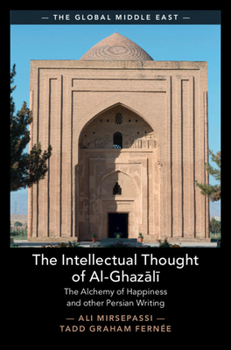The Intellectual Thought of Al-Ghazālī
Abu Hamid Muhammad al-Ghazali (1058-1111) was one of the most influential philosophers of the classical Islamic period, with his intellectual innovations spanning the fields of theology, logic, and law. Despite this, contemporary assessments of Ghazali often present him as hostile to rationality, and a guardian of dogma and orthodoxy. This study provides an innovative reassessment of Ghazali's legacy, offering a compelling depiction of a reformer in his own time with increasing relevance to the issues gripping multicultural and globalized societies today. Ali Mirsepassi and Tadd Graham Fernée closely study Ghazali's major Persian-language text Kimiya-e saadat (The Alchemy of Happiness) and its scholarly reception, alongside his lesser-read works, arguing that Ghazali shared a message of reform, and critique of Abbasid institutions. Ghazali's critical stance is revealed as both pragmatic and cosmopolitan in its recognition of autonomy from religion in many aspects of life, and in the value placed upon scientific contribution. is revealed as both pragmatic and cosmopolitan in its recognition of autonomy from religion in many aspects of life, and in the value placed upon scientific contribution.
Format:Hardcover
Language:English
ISBN:1009538160
ISBN13:9781009538169
Release Date:December 2024
Publisher:Cambridge University Press
Length:270 Pages
Weight:1.17 lbs.
Dimensions:0.6" x 6.0" x 9.0"
Customer Reviews
0 rating





